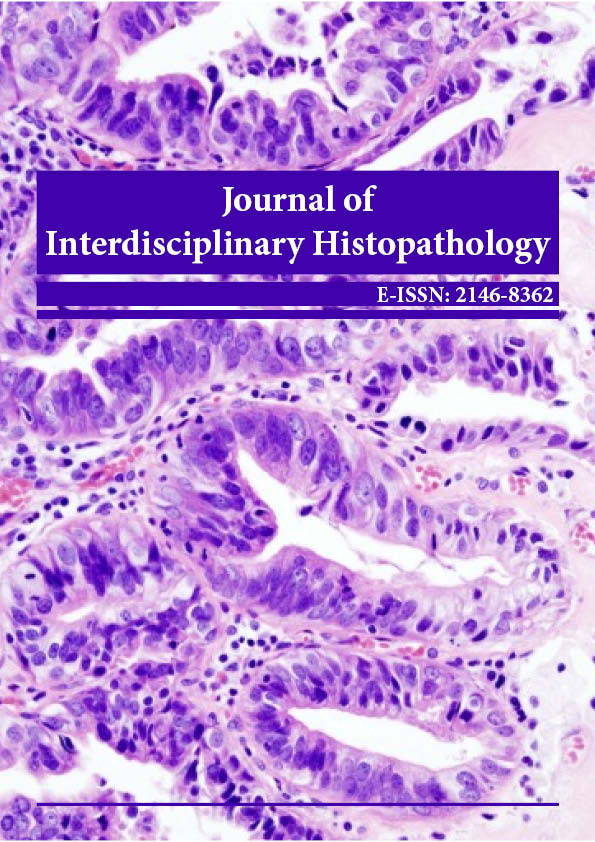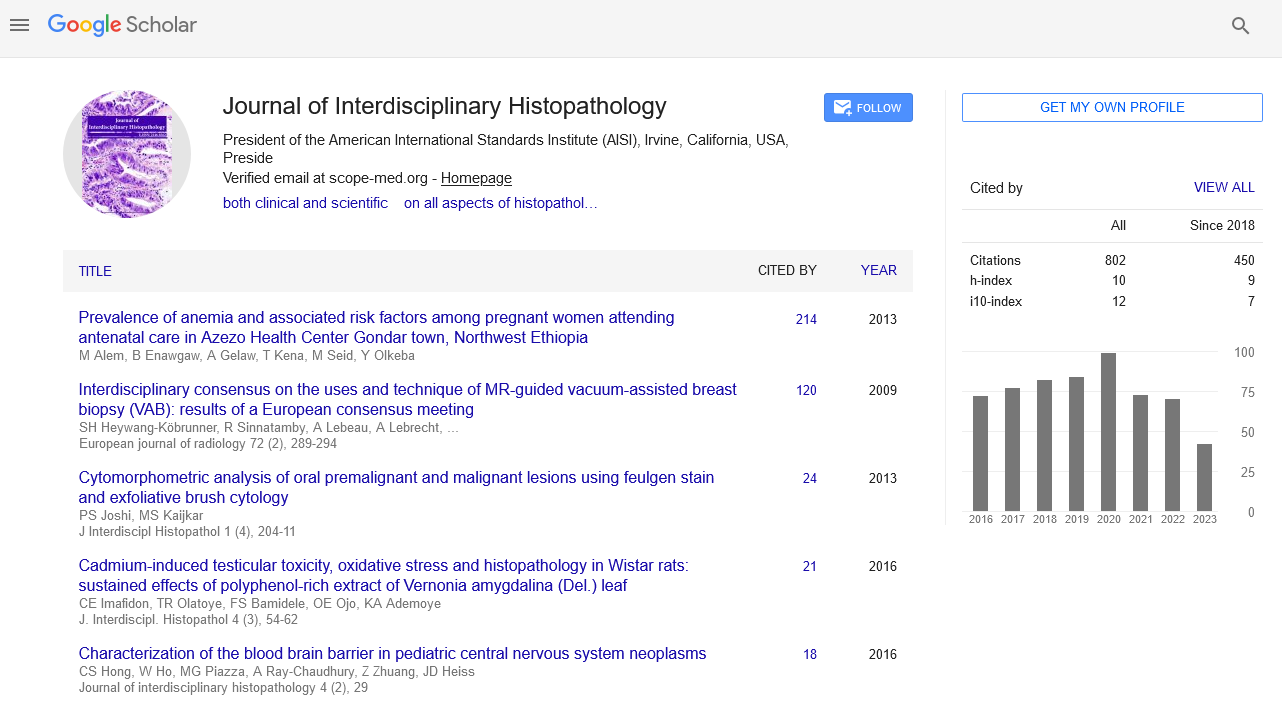Eff ect of Semicarbazide on the testis of juvenile male albino rat
Abstract
Neveen M. El-Sherif, Abeer E. El-Mehi
Background: Semicarbazide (SEM) is an azodicarbonamide byproduct present in a glass jar packaged foods especially baby foods. A relatively high consumption of these products by infants can result in higher exposure compared with other consumers. Objectives: This study was performed to throw light on the effect of SEM on the testis of juvenile male albino rat. Materials and Methods: This study was carried out on 20 juvenile male albino rats divided into the control group, and SEM treated group. Animals of the SEM treated group were administered 40 mg of SEM orally once daily for 30 days. At the end of the experiment, animals were weighed and then sacrificed. The parameters examined were gonadal index, epididymal spermatozoal examination, histological study, immunohistochemical staining for proliferating cell nuclear antigen (PCNA) in addition to ultrastructural study. Morphometric study and statistical analysis of the results were carried out. Results: The gonadal index of SEM treated group showed a significant decrease compared with the control group. Loss of germ cells was confirmed by a significantly low sperm count. SEM induced variable degrees of tubular affection in the form of distorted seminiferous tubules, cellular disorganization, sloughing and cytoplasmic vacuolation. Acidophilic hyaline material, vacuolations, and congested blood vessels were present in most of the interstitial spaces. Immunohistochemically, SEM treatment induced a marked reduction in the number of PCNA immunoreactive cells. An ultrastructural alteration of spermatogenic cells and wide separation in between germ cells were observed. Conclusions: These results suggest that growing animals are more susceptible to gonadal toxicity of SEM. It is better to avoid food products sold in glass jars, especially during the juvenile period.






